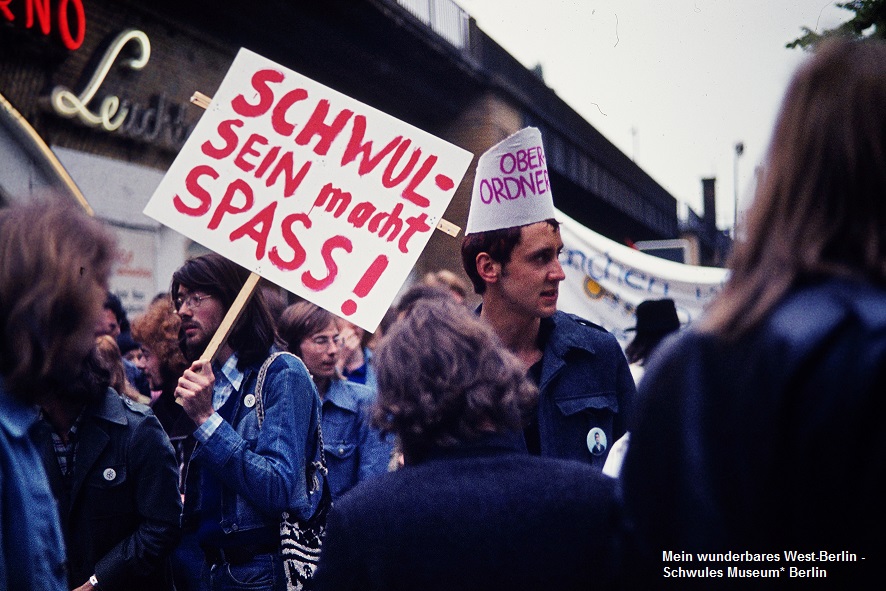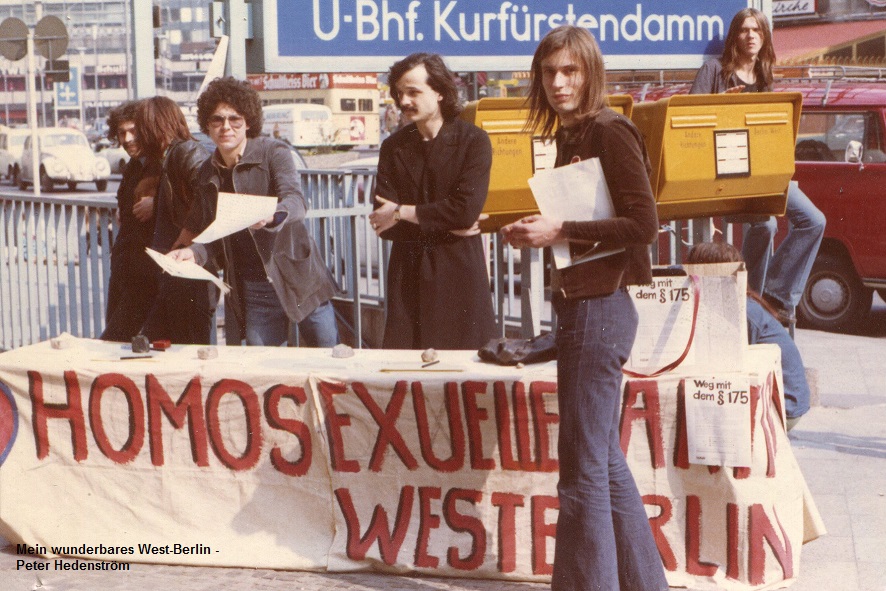What makes Berlin so attractive and appealing to LGBT people beyond its borders did not develop overnight. In his new film "My wonderful West Berlin", Jochen Hick shows what life was like for gays in the divided city after the end of the war.
Berlin is Germany's gay capital and one of the most important queer metropolises in the world. Of course, you don't have to be a deluded local patriot to realise this. Even the city's tourism office officially praises Berlin as the "epicentre of the gay and lesbian scene in Europe". Whether institutions such as the Gay Museum*, the gay bookshop Prinz Eisenherz and the gay centre SchwuZ or the Teddy Award of the Berlinale. Not forgetting the almost unmanageable, constantly changing landscape of queer subculture. Of course, everything that makes Berlin so attractive and appealing to LGBT people beyond the city's borders did not develop overnight or by itself. And it was probably only able to develop in this special biotope of the Wall City. In his new film "My Wonderful West Berlin", Jochen Hick shows how life developed for gays in the now divided city after the end of the war.
Unlike in his counterpart "Out in East Berlin", where Jochen Hick focused on the lesbian-gay scene in East Berlin as a whole, here the Berlin filmmaker concentrates entirely on gay life. One may regret this decision, but after these one and a half hours of film, which are richly researched and bursting with stories and history, it is all too understandable.
Clever and dynamically composed journey through time
And even so, many side aspects from five decades of the gay movement and gay (scene) everyday life could only be touched upon. From the repression that forced homosexuals to live a largely hidden life in the 1950s, this cleverly and dynamically composed journey through time takes us from the spirit of optimism at the beginning of the 1970s with its student-led emancipation movement to the 1980s, when not only many of the queer institutions that are still significant today were founded, but also the AIDS crisis shook and changed the community to its very foundations.

Plenty of material, and yet "My marvellous West Berlin" is not a dull historical documentary. This is due not least to the colourful mix of more or less prominent contemporary witnesses and activists. Hick interviewed and portrayed entertainer Romy Haag and make-up artist René Koch for his film. The Berlinale curator and father of the Teddy Award, Wieland Speck, and the co-founder of the gay museum*, Wolfgang Theis, are also included in the film. These open-hearted interviewees tell bizarre anecdotes and moving episodes. And they are also able to look back on the past with both self-deprecation and self-criticism. For example, the gay movement in the 1970s, which was characterised by left-wing theory and criticism of capitalism. What the group discussions dominated by political phrases sounded like back then can be relived on video recordings published for the first time: an almost Loriot-like scene.
Entertaining and informative historical panorama
However, there are also memories such as those of costume tailor Klaus Schumann, born in 1937, who was rejected by his family after coming out publicly and later saw his partner die of Aids. "Mein wunderbares West-Berlin" is full of such very personal memories. There are touching, funny, enlightening and surprising moments and scenes that come together to form an entertaining and instructive historical panorama. Thanks to the clever editing, the social developments and exemplary life stories are condensed without romanticising them or exaggerating them for the sake of dramatic effect.
For some, "My Wonderful West Berlin" will be an entertaining and instructive history lesson; for others, who experienced the times locally or from afar, the film will certainly awaken memories and the emotions associated with them. And perhaps also surprisingly realise how little the history of gay everyday life and movement in Germany has been recorded on film to date. This makes documentaries like this all the more important, in which gay/queer history is preserved and - the few - existing film documents from that time are located and now also secured.
"My wonderful West Berlin". Directed by Jochen Hick. With Klaus Schumann, René Koch, Rosa von Praunheim, Romy Haag, Wolfgang Müller, Ades Zabel, DJ Westbam. And with Wilfried Laule, Salomé, Peter Hedenström, Gerhard Hoffmann, Dirk Ludigs, Wolfgang Theis, Detlef Mücke, Patsy L'Amour LaLove and others. 90 minutes. Cinema release: 29 June 2017.
www.wunderbares-west-berlin.de

Trailer here view.









